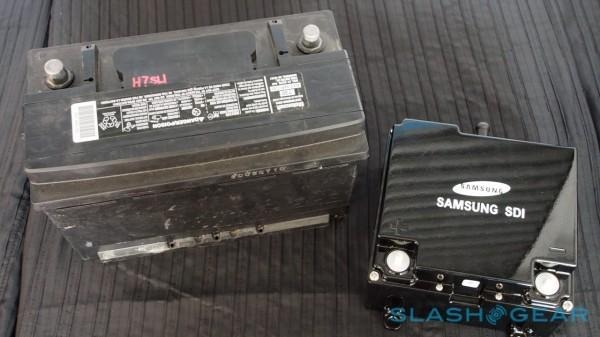Samsung And Ford Reveal Next-Gen Car Batteries
Ford and Samsung SDI have revealed the fruits of a decade of car battery research, with a new ultra-lightweight li-ion battery concept that could end up 40-percent lighter than nickel-metal-hydride packs many hybrids and EVs currently use. Meanwhile, there's also a new dual-battery system which could deliver hybrid-style regenerative braking on regular cars.
Hybrids and pure-EVs recapture some of the power they've exerted getting up to speed when braking, by effectively temporarily switching the motors into generators. Ford and Samsung SDI's approach has been to pair a 12-volt lead-acid battery with a li-ion battery, charging up during deceleration and then being used to power things like infotainment systems.

Ford hopes to potentially use the technology in its future cars, in association with an increase in auto stop-start technology. Somewhat further out, however, is the ultra-light li-ion pack.
The advantage over existing li-ion packs – themselves already 25-30 percent lighter than nickel-metal-hydride packs – is a further weight cut. In fact, Ford suggests, hybrids and EVs using the technology could cut up to twelve pounds from the weight of the car.
That, in combination with research like Ford's Lightweight Concept Car, could allow for smaller engines without a drop in performance.



